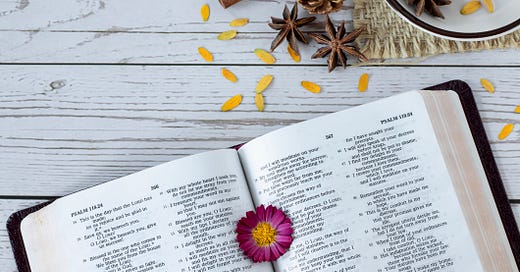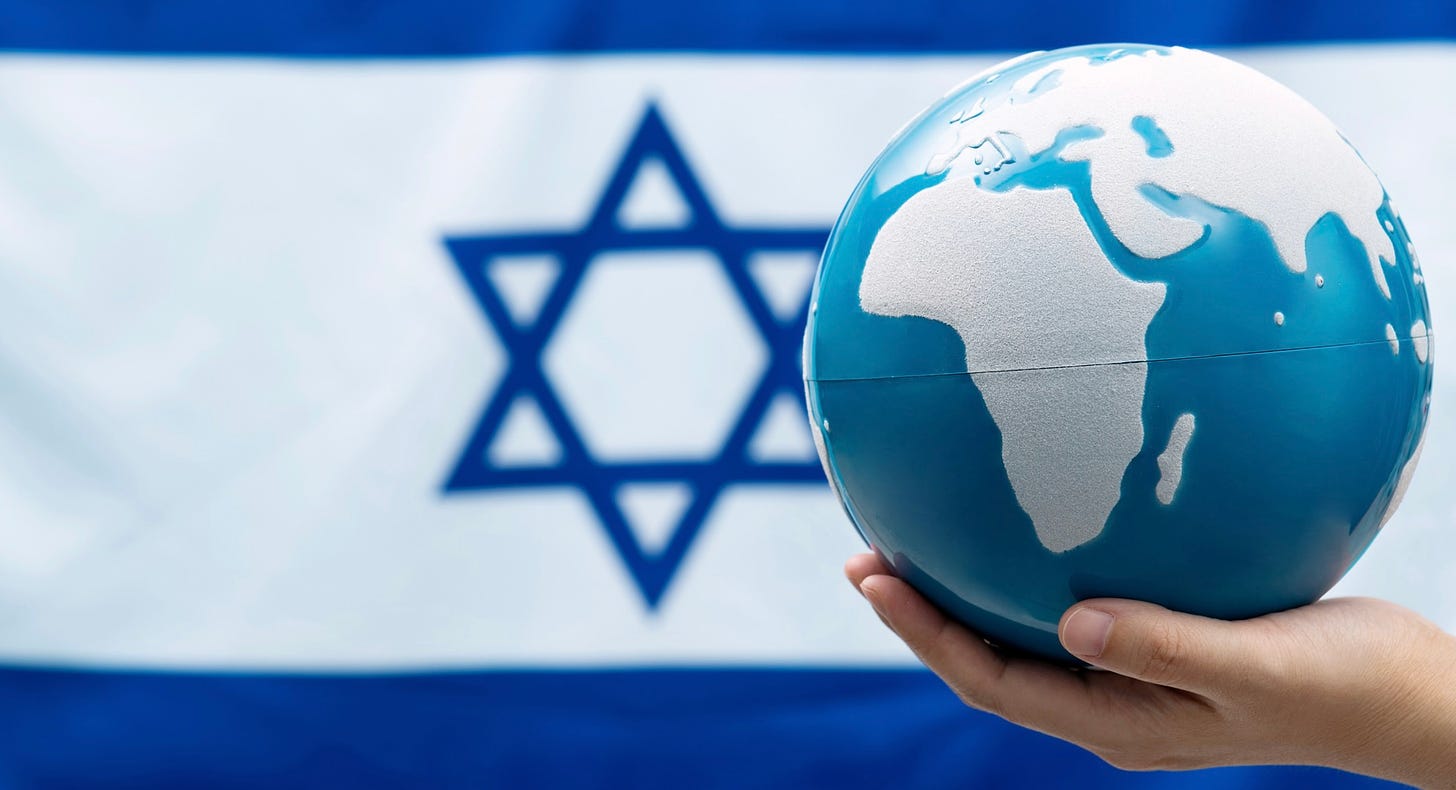Hints of Eternity
"I now notice there are specific verses I've recited my whole life that never quite clicked — until I reached a moment of personal import or crossroads that brought them into technicolor."
By Beth Perkel
There is a written collection of Jewish oral traditions (Mishna) called Ethics of the Fathers that speaks about 10 things that G-d created “at the buzzer,” if you will, in the moments before he finished the seven days of creation and rested on the first Sabbath. In an act of perfect planning, these ten supernatural objects had to be put into the world for later use at necessary points in the distant future of the world.
For example, there was a special worm that could cut stone for when the Jews were wandering in the desert and needed to build the tabernacle without an ancient version of power tools.
There was the rainbow that would be used as a covenant between G-d and mankind via Noah after the great flood.
There was even a miraculous first set of tongs that was necessary to create any metal tongs after that, given that something needed to keep the object in the smelting pot other than delicate fingers and flammable objects.
Lately, I’ve begun to sense that the same concept of distant placement for the future resonates with scriptural verses as well. In other words, there are verses or pieces of scripture that seem to have been put there since the beginning of time as place markers for the future, bookmarks to turn back to as the right words to cry out to G-d when they became relevant, or provide insight for particular historical junctures.
Sometimes those place-markers can feel of personal relevance and sometimes of communal relevance. Either way, I have found that certain verses or Rabbinical insights take on much greater depth when their moment comes.
In the realm of personal relevance, there are certain verses I have said my whole life that never quite clicked until I reached a moment of personal import or crossroads that brought them into technicolor. For example, there is a psalm I have been saying daily for almost 14 years, since the time a friend of mine found out that her three-year-old son had a degenerative disease that might take his life or mobility within the decade. A group of friends split up all of King David’s Psalms to recite in the little boy’s merit. He is still thriving today and nearing the end of high school. The reason I chose that one particular psalm to say at the time was because one particular verse spoke to something I was working through in my life then.
Fourteen years later, there is a totally separate verse within that same psalm that eerily echoes a new challenge in my life. It makes me think that perhaps all along I was supposed to say this every day — just to pray that one verse for my currently far-more-challenging circumstance all these years later.
After October 7, I find certain prayers take on additional depth as well, and this echoes deeply in my mind as we near the year mark. Jewish prayer as we arise in the morning includes a blessing that I never fully connected to before, known as: “matir asurim”: Blessed are thou G-d, who frees those bound up”…The other meaning of the Hebrew word “asur” is hostage, so in our times, the blessing can also be understood as: “Blessed are you G-d, who frees hostages.”
Then there is an even eerier verse in King Solomon’s book Ecclesiastes (2:3): There is a time to cry and a time to laugh, a time to eulogize and a time to dance.
When the grammar of this verse is examined closely, we see that there is a letter missing in both verbs (the Hebrew letter lamed), the absence of which implies that both verbs are meant in the immediate present tense. In other words, it seems that there is a time of dancing that is also a time of eulogizing.
Pre-October 7, this verse begged the question: how is it possible to be actively engaged in dancing and to be mourning at the same time? Post October 7, the answer is now clear: On October 7, we went through a holiday of dancing that became a time of eulogizing on the spot.
Perhaps this verse was put in place thousands of years ago to describe the holiday of simchas torah that the Jewish people are now about to celebrate for the first time in a post-October 7 world.
Our very day of dancing has turned into a day of eulogizing as well. We must confront this notion while remembering that as Jews, we are experts on holding multiple feelings at hand in the very same moment. We live in a world of history, of present, and of future yearning all at once. And within all of those we remember that if G-d made verses that echo certain pain that didn’t make sense until now, there are others that will hopefully be illuminated yet to lead our people to times of joy.
BETH PERKEL is the author of Light at the Beginning of the Tunnel: Wiring our Children for Happiness, and hosts the podcast: Ideas That Change Lives.
From unpacking history and politics to navigating the nuances of family and personal relationships to finding the human angle on sports and entertainment — plus our unsparing take on what’s happening in the Jewish world — the canvas at JEWDICIOUS is limitless! JOIN US!!





